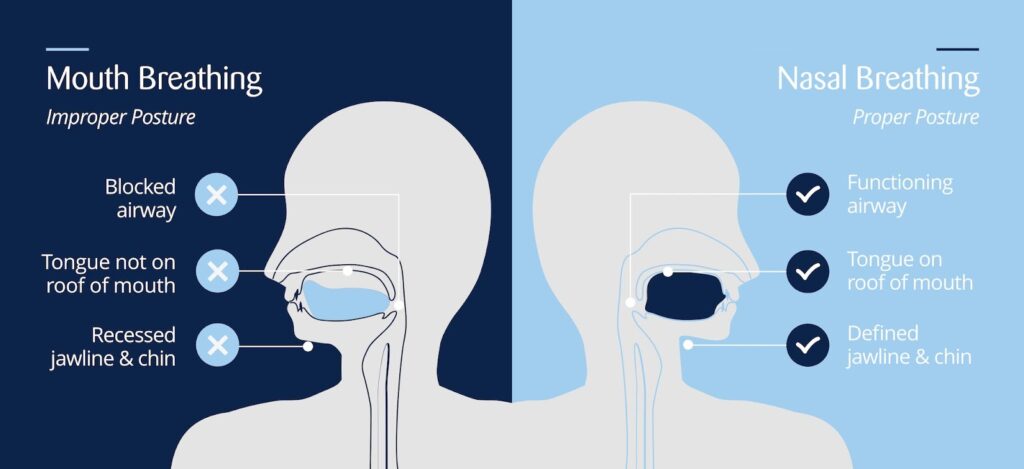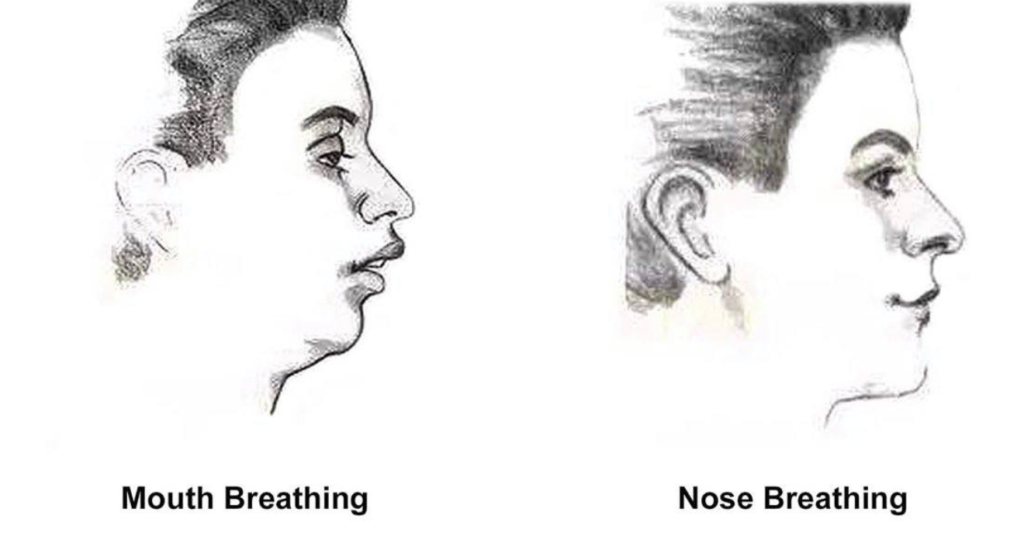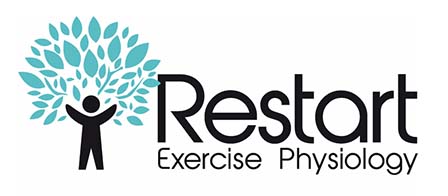Have you ever stopped to think… am I more of a mouth breather, or a nasal breather?
If you are a living, breathing human-being you have developed a habit for one over the other – it’s what comes naturally, and as long as you don’t feel out of breath, what’s the difference anyway…
There is substantial research that highlights the vast health benefits of breathing through your nose, so much so that you will want to implement strategies to make the switch from mouth to nose if you’re yet to.
What’s it all about then?
Indigenous cultures have long understood the importance of nasal breathing – Native Americans are documented to teach their babies to breathe nasally within days of being born due to their innate wisdom surrounding the benefits of nasally-driven breath. Anthropometric studies reflect this in skulls found throughout history, with significantly wider and more expansive nasal apertures and more prominent jaw and facial structures the norm which indicates habitual nasal breathing (more on this in benefit #3).
But how can breathing air through your nostrils versus your mouth really have any benefits. It’s all just air being breathed in right…?
The first thing to do right now is to pause for a moment and check in on your breath. Are you drawing in oxygen through your mouth, that sits open, or through your nose, as your lips are pursed shut? Another representation of mouth breathing is waking each morning with a dry mouth, or being reminded by your disgruntled partner of your rampant snoring. Other indicators of mouth breathing include frequent yawning or sighing throughout the day.
The good news is, a raft of health benefits await if you can switch from habitual mouth breathing to habitual nasal breathing. Here are five life-enhancing benefits of nasal breathing!
1. Reduction in blood pressure
Whether you’ve been diagnosed with high blood pressure or not, achieving a healthy resting blood pressure is key to long-term health. A great way to improve your resting blood pressure is to breathe nasally.
This is due to the uptake of Nitric Oxide (NO) within our sinus cavities, which combines with the air we inspire during nasal breathing and leads to vasodilation (widening) of our blood vessels. The flow-on effect is less resistance on the blood flowing through our vessels, thus reducing blood pressure and improving circulation throughout our body.
When we breathe through our mouth we tend to ‘over-breathe’ which has a number of poor outcomes, including reducing our body’s tolerance to carbon dioxide. Much like NO, Carbon dioxide has a profound dilating effect on our blood vessels – making the switch to nasal breathing will encourage you to breathe less, thus allowing a greater tolerance to CO2.
If we breathe through our mouth, we miss out on the dual-vasodilation effect of NO uptake and improved CO2 tolerance. Over time this will exacerbate elevated blood pressure brought about by other lifestyle stressors.
Of course, the benefits of reduced blood pressure are widely documented, and include reduced risk of heart and circulatory diseases such as stroke and heart failure.
2. Reduced snoring and improved sleep
If your reputation for chainsaw-like snoring precedes you, this ones for you. Making the switch to nasal breathing is a known strategy to reduce snoring and reduce your risk of Sleep apnoea (a condition where you stop breathing countless times to the extent that no air can pass through your throat into your lungs, leading to very broken sleep). If you’ve already developed Sleep apnoea (data shows around 1 in 4 men over 30 have some degree of SA), nasal breathing can help you to reverse this condition entirely.
Additionally, if you are frequently making toilet trips throughout the evening, switching to nasal breathing can help here too. Sleep apnoea can also lead to more frequent urination throughout the night. Vasopressin is a hormone that communicates with our cells to store more water – a lack of deep sleep affects the amount of Vasopressin released by our Pituitary gland.
3. Support the correct formation of teeth and jaw
“Of the 5,400 different species of mammals on the planet, humans are now the only ones to routinely have misaligned jaws, overbites, underbites, and crooked teeth, a condition formally called malocclusion” (1).
As mentioned during the intro, for centuries people have understood the benefits of nasal breathing and its importance in being adopted from a very young age. Skulls found ranging from 200 to thousands of years of age show expansive sinus cavities and broad mouths, which in turn created wider airways, a direct reflection of how well they breathed.
Nasal breathing shapes a more defined and prominent jaw and chin which helps to create more space within the mouth and less teeth crowding. By nasal breathing and applying our tongue to the roof of the mouth, the roof of our mouth (palate) takes on a broader shape which helps to develop healthier sinus cavities and resultant face structure.

As we as a species have lost our way with breathing, our facial structures have changed to our detriment.

4. Improved daily energy levels
Let’s face it – who doesn’t want to feel more energised throughout the day!? Our lives are a constant barrage of attention-seeking problem-solving, all requiring focus, decisions, brain-power and energy.
The body is known to absorb up to 18% more oxygen when we breathe through our nose (1). This is why breathing nasally and breathing less is so effective in treating Asthma and other respiratory conditions. Incredibly, within a few minutes of over-breathing (read my previous blog titled Is Overbreathing Negatively Affecting Your Health) aka mouth breathing, brain blood flow can decrease by up to 40%.
Think of this next time you hit your typical 3pm energy slump – instead of reaching for a coffee or energy drink to continue the energy rollercoaster, stop and do some nasal breathing. Better for your health and your back pocket!
5. Improved exercise performance
Oxygen is known to be a ‘strong electron acceptor’. Breathing slow, less and nasally balances the levels of respiratory gases in the body and sends the maximum amount of oxygen to the maximum amount of tissues so our cells have the maximum amount of electron re-activity. This will benefit our body’s ability to use oxygen to metabolise and create Adenosine triphosphate (ATP) (ATP is a nucleotide that provides energy to drive and support many processes in living cells such as muscle contractions and nerve impulses).
A muscle that is well supplied with oxygen is less prone to lactic-acid build-up and fatigue – see this as greater ability to push out one more repetition, give you that needed kick to finish strong on your 2km row time-trial, or simply carry all the shopping bags in one trip or climb the stairs at home without giving in to shortness of breath.
Conclusion
The greatest challenge of this blog was selecting which five benefits of nasal breathing to highlight. There are so many additional benefits, including the nostrils ability to filter dust, pollen and allergens to prevent them entering our lungs (no such benefit when mouth breathing), to stress management and nasal breathing’s positive effect on our nervous system.
If you haven’t already, making the switch to habitual nasal breathing over mouth breathing will enhance many aspects of your health and well-being, from improving your sleep, daily energy levels, oral and immune health, and ability to function without an overwhelming sense of shortness of breath.
Happy training (and nasal breathing 👃🏼)
Luke
References
If you want to change the way you breathe to give your health a massive boost, perhaps the best two books you can read on this subject in my opinion are:
- Nestor, J. (2020). Breath: The new science of a lost art, Penguin Life
- McKeown, P (2015). The oxygen advantage: simple, scientifically proven breathing technique to help you become healthier, slimmer, faster, and fitter. New York, NY: William Morrow & Company
- https://www.healthline.com/health/nose-breathing#differences, accessed 7th March 2024
- https://www.mewing.app/blog/mouth-breathing-vs-nose-breathing, accessed 7th March 2024

0 Comments